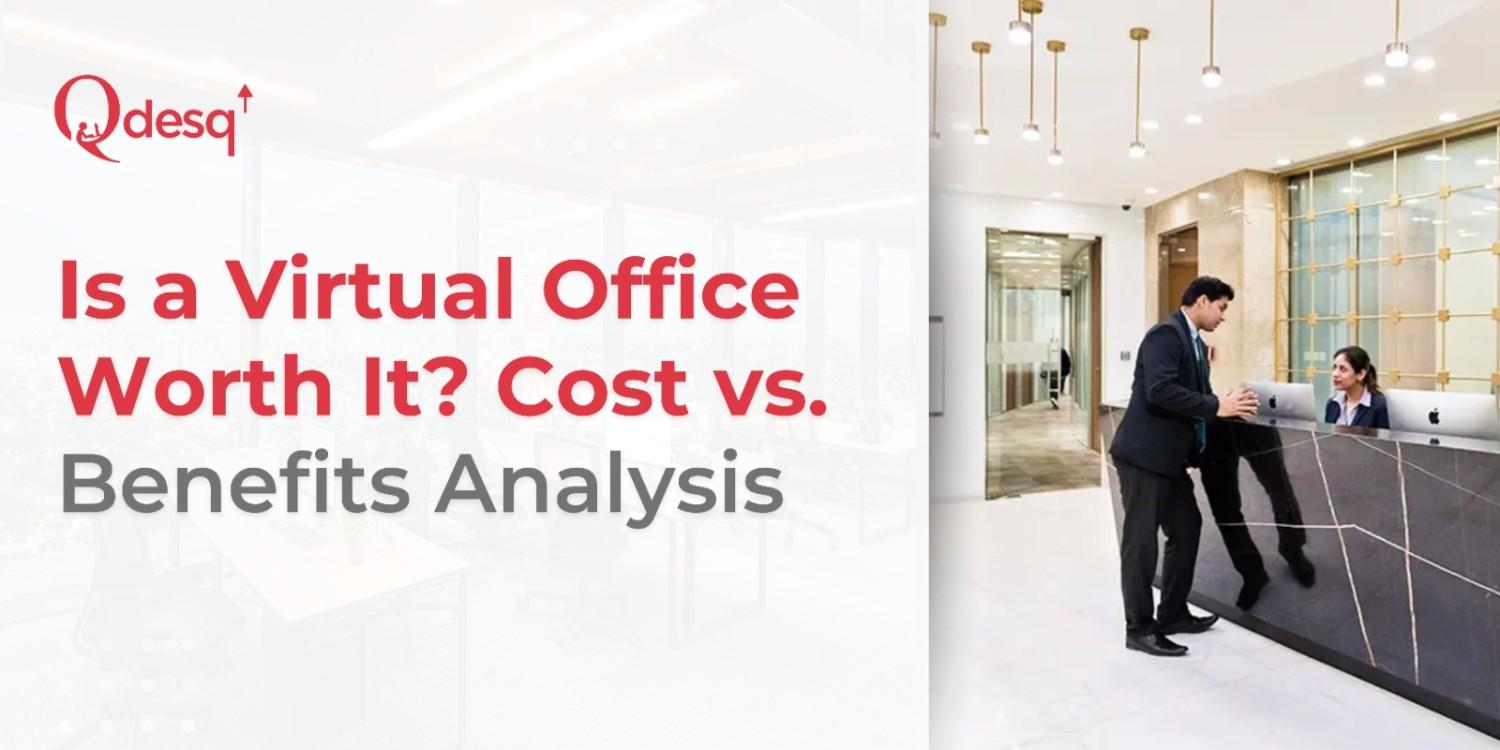Remote work has changed everything—from how we work to where we work. And in this transformation, virtual offices have quietly become a powerful tool for businesses that want to stay lean, professional, and flexible. But is it just hype or a wise investment? Let’s dive into a clear cost vs. benefits breakdown to determine if a virtual office is worth it.
What is a Virtual Office?
A virtual office offers all the perks of having a professional business presence, like a prestigious mailing address, mail handling, phone answering services, and access to meeting rooms, without actually renting a physical space full-time. You’re essentially getting the appearance and functionality of an actual office while still working from wherever you want: home, a café, or the beach.
This concept is designed for the modern-day entrepreneur and remote team. It bridges the gap between a full-blown office lease and complete digital freedom, making it especially appealing for small businesses looking to scale or appear more established without draining their budget.
Cost Analysis
Compared to leasing a physical office, a virtual office is significantly more affordable. Renting an office space involves monthly rent and extra expenses like electricity, internet, furniture, cleaning, maintenance, and security. These costs can add up quickly, making it an expensive commitment, especially for small businesses or solo professionals.
With a virtual office, you only pay for what you need. Monthly subscriptions are usually modest and vary depending on your chosen services, like whether you want call answering, mail forwarding, or meeting room access. The best part? There’s no long-term lease, and setup is usually instant.
Why Virtual Offices Are a Strategic Business Move?
Professional Image
One of the most significant benefits is the credibility boost. Having a recognised commercial address in a business district immediately makes your business appear more trustworthy and established, especially important if you’re dealing with clients who may hesitate to work with someone operating from home.
Flexibility
Virtual offices allow you to work from anywhere while maintaining a professional front. Your business address stays consistent whether travelling, relocating, or simply working from home. This flexibility is particularly valuable for entrepreneurs who are not tied to one location.
Cost Savings
The financial advantage is hard to ignore. Your overhead is drastically reduced without rent, maintenance, or utility bills. These savings can then be redirected into other parts of your business, like marketing, hiring, or product development.
Scalability
As your business grows, so can your virtual office plan. Need to expand into another city? No problem. Many virtual office providers allow you to add multiple locations to your account without physically relocating, allowing you to test new markets with minimal risk.
Administrative Support
Many virtual office plans include receptionist services, mail handling, and even voicemail-to-email services. These small perks save time and reduce distractions, letting you focus on your actual work instead of managing admin tasks.
Meeting Room Access
While you might work remotely most of the time, occasionally, you may need a professional space to meet a client or host a team session. Most virtual office providers offer access to well-equipped meeting rooms on a pay-as-you-go basis, ensuring you maintain a polished image when needed, without maintaining a space 24/7.
Environmentally Friendly
Virtual offices also contribute to a smaller carbon footprint. With fewer daily commutes and less energy consumption, your business can operate more sustainably—something that more clients and customers appreciate today.
Cost vs. Benefits: A Detailed Comparison
When it comes to running a business, keeping costs low without sacrificing professionalism is a big win. That’s exactly where virtual offices shine.
Cost-wise, virtual offices are far more affordable than traditional office spaces. Renting a physical office means you’ll need to cover monthly rent, electricity, internet, furniture, maintenance, and staff. These costs can become a huge burden, especially for freelancers, startups, or small businesses. In contrast, virtual offices offer a low monthly fee that includes essentials like a professional address, mail handling, and even access to meeting rooms when needed. You only pay for what you use—no surprise bills or long-term leases.
On the benefits side, a virtual office gives you flexibility and freedom. You can work from anywhere while still maintaining a professional presence in a major city. This helps build trust with clients and partners. Many virtual office providers also offer services like call answering, receptionist support, and meeting room access, so you don’t miss out on the perks of a physical setup.
What This Means for Your Business:
Looking at both the costs vs benefits analysis, it’s clear that virtual offices offer an efficient and practical solution for many modern businesses. They significantly reduce overhead while still providing the tools and professional presence needed to run smoothly. For digital-first and service-based businesses, it’s a practical way to stay efficient and agile in today’s fast-moving market.
Final Verdict: Is a Virtual Office Worth It?
If your work doesn’t require a daily physical location and you’re looking to keep costs low while maintaining a professional appearance, a virtual office is absolutely worth it. It’s a wise, low-risk investment for freelancers, consultants, remote teams, and businesses looking to scale without stretching their finances.
However, the answer might differ if you need to host frequent in-person meetings, have a large staff, or require physical storage. A hybrid or traditional office setup might serve you better in those cases.
But for most modern, remote-friendly businesses, the virtual office is more than just a cost-saving hack—it’s a strategic tool for growth.
Conclusion
How we work is evolving, and virtual offices represent the future of business infrastructure. They allow small teams and solo entrepreneurs to look big, act professionally, and stay flexible—all while keeping expenses under control.
So if your business can run remotely but still needs a polished front to face the world, a virtual office isn’t just a good idea—it might be one of the most thoughtful decisions you can make.











